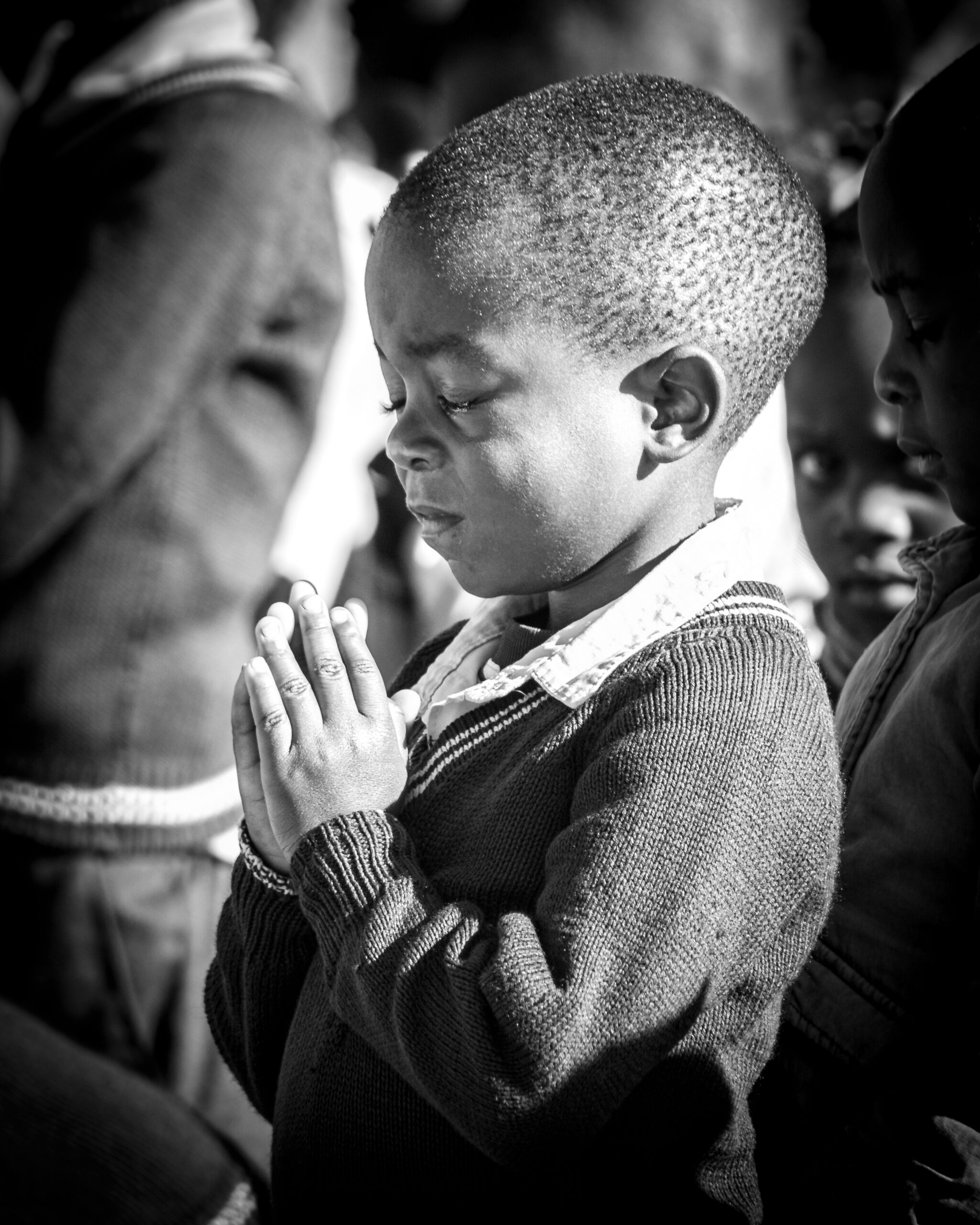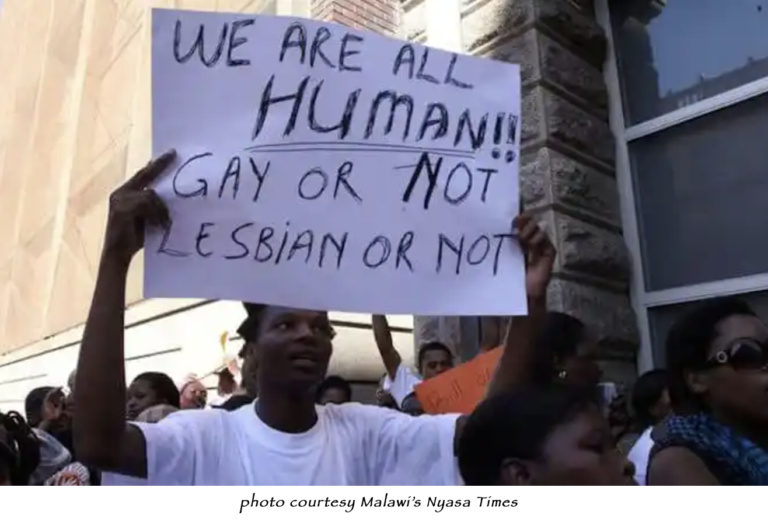When I was a kid, I was good enough at my sport to make the local all-star team. I honestly have no idea how stiff the competition was for that spot, but I thought it was kind of a big deal to be the illustrious first pick. I was quick, accurate, and tough, but I wasn’t very assertive off the field so I waited for my coach to prepare me for the game. And I waited. And waited. I waited for him to give me the details of the most important game of my life. Then I heard his daughter talking at school about the awesome play she had made in the big game. I couldn’t believe my ears! My coach had taken his own daughter to play in my place; he even registered her under my name! Mom was sympathetic to my plight, but she was kind of busy with the fact that my dad was in prison and she was raising five kids on her own. So, I decided to take matters into my own hands and prayed against that coach and his daughter, which was weird because I had never prayed about anything and didn’t even believe in God. I guess I was just angry enough to try anything. I prayed for weeks that God would hurt them. Then my coach had a heart attack and died. I’m not making this up.
Believe it or not, that was one of my first inklings that God might be real. I didn’t know anything about Him and didn’t know who to ask, but I couldn’t deny that someone somewhere had heard and answered my prayers. I felt at first a little satisfied and then a little scared and finally a little sick to my stomach. Did I actually kill that guy? If I could make things like that happen, that made me pretty powerful. So, I prayed that my dad would get out of prison. He didn’t. A year later I prayed that my younger brother would come back to life after he drowned in the lake. He didn’t. Then I just started praying that God would show up and make our lives better somehow. He didn’t. So, I quit praying and quit believing. Instead, I let all the sadness and hate build up into a huge knot inside my heart, where it stayed tucked away behind a steel door, untouched until I was twenty-five years old. That’s when I was introduced to Jesus, and He began to pry it open.
If you keep reading my blog, you’re bound to hear more details about my childhood, but this story is about praying for your enemies. More specifically, it’s about how I have learned am learning to pray for my enemies. Shortly after my conversion, it came to my attention that Christians are supposed to do a lot of things I wasn’t doing. Since I couldn’t possibly tackle them all at once, I relegated praying for enemies to my things-to-work-on-to-be-a-better-person list and tucked it away for a rainy day. But it’s funny how quickly I made enemies when I tried to live a godly life. Some of them were legitimate persecutors of Christianity, but others were just decent people who hated me because I was a real jerk about my new found faith, telling them they shouldn’t smoke or drink or cuss or basically be human. (I didn’t fully understand until much later that the primary reason Jesus came to earth was not to squash fun and kill dreams.) Either way, I made more enemies as a Christian than I ever had before, so I had to dust off that to-do list and get to work.
I remember the first time I heard the idea that we can “pray the Psalms.” Well, who doesn’t want to pray, “Lord, save me from my enemies. Avenge me. Put them to shame?” Sweet! I loved praying like that. I felt vindicated for that lethal childhood prayer and even started employing my newfound skill against other people I deemed enemies—the neighbor who played her music too loud, the guy who held me up at gunpoint outside the ATM, and even my own father. I felt justified, but I didn’t feel good. In my heart of hearts I knew it was wrong. It was wrong because those people were not my primary enemies, and it was wrong because that was not what Jesus meant when He said to pray for those who were. So, I moved away from the dash-their-babies-against-the-rocks prayers and into the give-them-what-they-deserve prayers. I mean, who doesn’t agree that praying for what is fair is a good idea?
The problem with praying for what’s fair is that I might get it. If I want justice for the woman who lied about my family, the people who robbed my home, or the man who cheated me out of thousands of dollars, then I’m asking for justice for me for the times I lied, robbed, and cheated. I don’t want justice for me. I want grace. I want Jesus to save me from my sins. And He has. It’s in the midst of this understanding that He’s revealing the dark forces from hell behind these people I call enemies and that when I pray for people it should be for them to be released from bondage and blessed by God, not punished because I don’t like them. And—bonus!—sometimes the very blessing someone needs is to be broken down by God. Yes, I know I shouldn’t rejoice in watching my enemies get theirs, but I’m only human and this is hard. I certainly have not arrived. I don’t really need to worry about what God does with my prayers or how my enemies receive His answers though, because praying for my enemies is not about them at all. It’s about me. If I want Jesus to forgive me, I have to ask Him to forgive my enemies. If I want Him to bless me, I have to want blessings for my enemies. If I want that steel door to be opened wide and my stone heart to be massaged into a heart of flesh, I have to want the same for my enemies.
Today my family lives in a small town where we have not only met some of our favorite people to date, but also surprisingly have more self-professed enemies than we ever have. Being the dean of a college, where John is the heavy on all things discipline during a (let’s face it) perverse generation is kind of like being an enemy magnet. We’ve had them dumped on us like so much dirty laundry since our arrival, and I’m unfortunately not only talking about students. But rather than fighting our way to the top of this pile, I’m hoping we have learned a thing or two in our many years of mission work. It’s taken me a while to get to this point, but I’m realizing the best course of action is to pray for God to bless our enemies, (even if I don’t want to) to pray that He will wash them, if you will, and use them for something productive to the Kingdom.
I’ve had several decades to think about it and, although I feel terrible about his death, I don’t think God gave me the power to pray my coach into a heart attack. I also don’t see my father as my enemy any more. After all these years, I don’t count many people as friends, but that doesn’t make them all enemies. I know Christian missionaries whose company I absolutely do not enjoy, but I recognize that we are still working toward the same goal. Personality does not an enemy make. (I know that sounds Yoda-ish, but it’s true so I’m sticking with it.) The point is that our only real enemies are the devil and his minions. The fact that we blame each other is just smoke and mirrors from hell. Submitting to the kind of prayer that petitions God for genuine blessings on those who persecute us is the hardest type of spiritual warfare we will ever engage in, but it’s also the most powerful.
If you don’t have any enemies and you’re not being persecuted on some level, maybe you’re doing this Christianity thing wrong. Come on, get in the game, bench warmer, and take one for the team! Unlike my childhood coach, God won’t leave us hanging, and He won’t betray us. He will use us in the big game between good and evil and—spoiler alert—those of us who stay in until the end will win! Besides, if you and I don’t get a handle on praying for our personal enemies, who’s going to pray for our global enemies like war and disease and hunger? We need you in that fight. The kids in Malawi need you in that fight. Thanks for doing the hard work. We’re glad to have you on our team!








Thanks for sharing this. I will join you in praying for your enemies! “May we never tire of doing what is good and right before our Lord because in His season we shall bring in a great harvest if we can just persist.” (Gal. 6:9)
Amen! I needed that, Mel. I miss you already.
What a beautiful reminder this is, Samantha! I heard a lesson once at church that often when burning coals are mentioned in the Bible they are the presence of God. Proverbs 25:21-22 talks about how our kindness to our enemies heaps burning coals on their heads. God’s presence. When I am behaving in a poor manner and someone is kind to me, it’s grace and the goodness of God in my life. His presence. May those you are praying for be blessed by God’s presence in their lives. Your kindness in the face of persecution is inspiring. I’m praying for breakthrough for you all. God bless you and the Malawi mission.
Jenny, thank you for your comment. I’m having trouble imagining you “behaving in a poor manner,” but I know the feeling of having hot coals dumped on my head and, yes, it is convicting for sure. I’ve never thought of that as God’s presence. That’s actually very helpful. You and your whole family are very dear to us. We love you!
Another good read/message. Made me laugh and convicted. Like you, God has softened my heart these past few years. We can never offer anyone anything if we do not love them.
Thank you, my anonymous friend! I certainly appreciate your encouragement.
Truth! I’m learning all this with you Sam. It’s not always easy but what you shared is truth. Thank you for sharing. We love you guys. K
Thank you, Kevin! We love you guys, and I appreciate your taking the time to comment.
Thank you, Samantha! Encouraging and challenging words! It can be incredibly painful to pray for certain enemies, especially ones who contributed to deep,, bleeding wounds, but it is amazingly freeing to move into a place, with the help of the Holy Spirit, to sincerely pray for changed hearts, minds, and relationships with our enemies.
Thank you, Christy! It is painful. “Freeing” is the right word for the other side of letting it all go though.
Peace, Love to all of you
Thank you, Lonnie! We love you.
Thank you for sharing a life lesson on one of the hardest things Jesus asks us to do.
Much love and many prayers.
I’m struggling with this lately, but each struggle produces a little more strength. Thank you for all the comments! I appreciate it so much.
Your style is really unique compared to other peole
I have red stuff from. Maany thannks for posting when you have the opportunity, Guess I wilkl juszt
book mark this site.
Thank you, Terra! I appreciate your comment. You can subscribe for my blog posts to be sent to your email address. Just scroll to the bottom of the website.